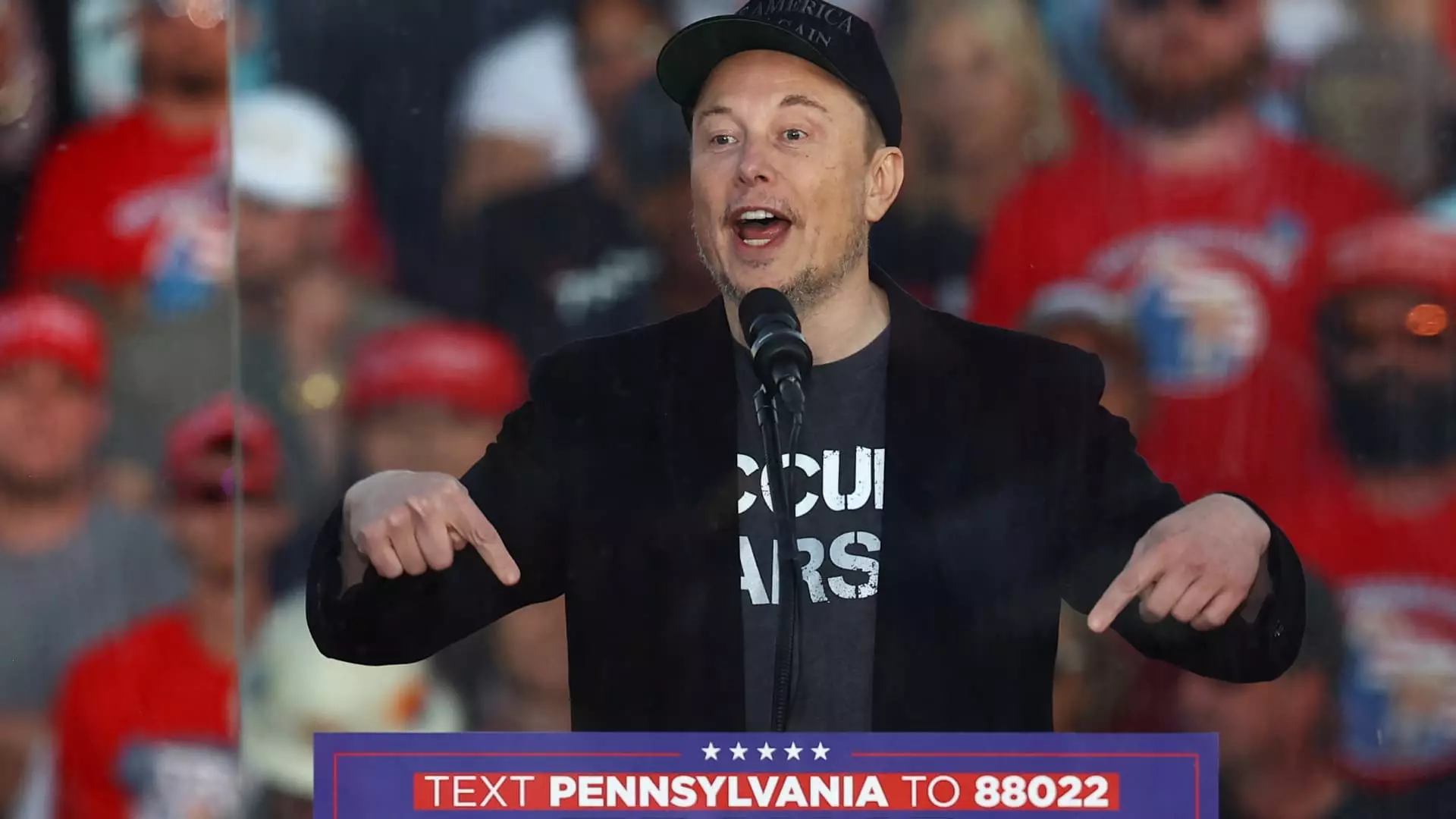In the turbulent realm of American politics, few figures provoke as much discussion as Elon Musk, the multifaceted CEO of Tesla and SpaceX. Known for his disruptive innovations and controversial statements, Musk is now making headlines for promoting a political action committee (PAC) initiative that blatantly combines political engagement with financial incentives. This article delves into Musk’s current support for Donald Trump and his PAC’s unconventional strategy to influence swing-state voters while raising questions about ethics, transparency, and the implications of monetizing political participation.
On a recent Sunday, Musk announced a tantalizing offer on X (formerly Twitter) which promised a $47 referral bonus for each registered voter from key swing states directed to an online petition. This kind of financial incentive is unprecedented in the political landscape and speaks volumes about the lengths to which PACs may go to gather voter information. Musk’s characterization of the act as “Easy money” trivializes the serious nature of political participation, reducing it to a mere transaction. Such statements can raise eyebrows about the authentic motivations behind political engagement when financial gain becomes the primary driver.
While the petition claims to support “First and Second Amendment rights,” its lack of clarity regarding recipients or specific demands raises significant concerns. Traditional petitions typically articulate clear goals and outline who they will address, allowing for accountability and transparency. Musk’s initiative, on the contrary, seems to focus solely on collecting personal information from voters without explaining the petition’s ultimate purpose. This opacity not only undermines the petition’s credibility but may also cast doubt on the ethical integrity of its creators.
The pivot towards swing states—like Pennsylvania, Georgia, and Arizona—reveals a calculated strategic approach designed to sway the election in favor of Trump. Musk’s initiative explicitly aims to activate 1 million registered voters in these crucial jurisdictions, highlighting their pivotal role in determining the election outcome. However, this geographical focus may overshadow the rights and opinions of voters in non-swing states who equally deserve a voice in democratic processes. The insistence that the program is for swing state voters alone appears to be a calculated political maneuver rather than a genuine outreach effort to bolster democratic engagement.
Musk’s PAC has faced scrutiny in the past for its methods of collecting voter information, notably during an investigation by the North Carolina Attorney General’s office. The emerging pattern of using questionable tactics—such as disguising information collection as voter registration assistance—should alarm potential participants. This leads to larger concerns about privacy, as signers are directed to share personal contact details without clear assurances regarding data use and protection. This ambiguity could dissuade citizens who are wary of how their information may be exploited in the politically charged digital landscape.
As the alleged founder of the America PAC, Musk wields significant influence over its direction and messaging. Yet, despite his prominent role, federal disclosures reveal a lack of direct financial contributions from Musk up until mid-2023. This raises questions about the extent of his commitment to the PAC’s goals. While media speculation suggests he may have donated since then, the timing of contributions becomes crucial, further entwining the interests of business and politics.
Musk’s involvement in this politically charged initiative blurs the lines between business strategy and political advocacy. The offer of monetary incentives for voter engagement raises ethical dilemmas over commodifying civic participation. As the political landscape becomes increasingly influenced by technological moguls and PAC-driven strategies, the risk is the erosion of genuine democratic engagement. With the election on the horizon, it is essential for voters to be vigilant, ensuring that their engagement in the democratic process is rooted in informed decision-making rather than opportunistic financial gain. This emerging trend poses a critical question: Can we truly engage in democracy if participation hinges on monetary rewards?


Leave a Reply